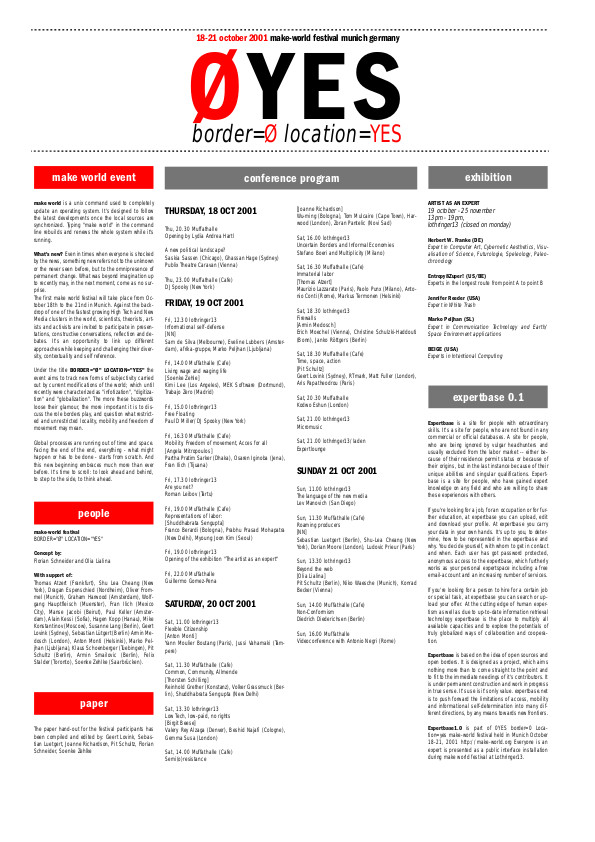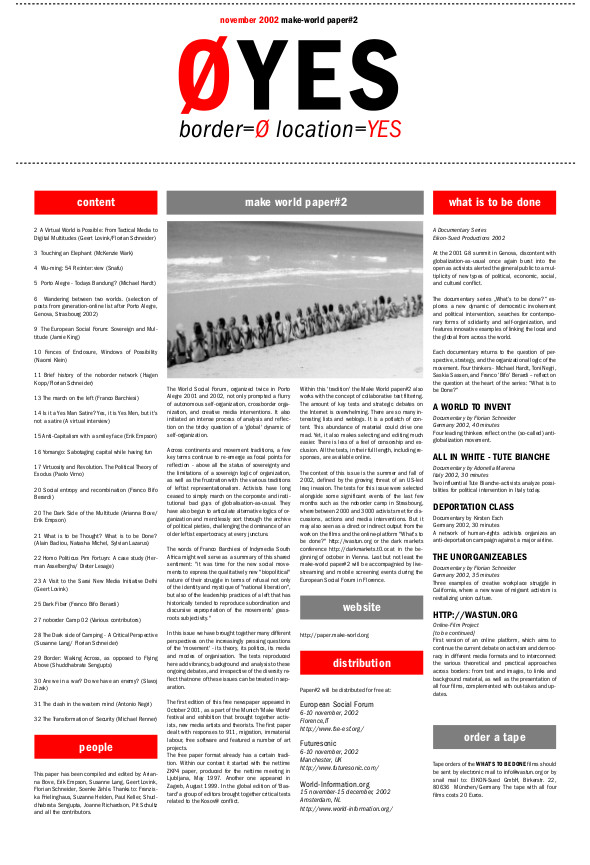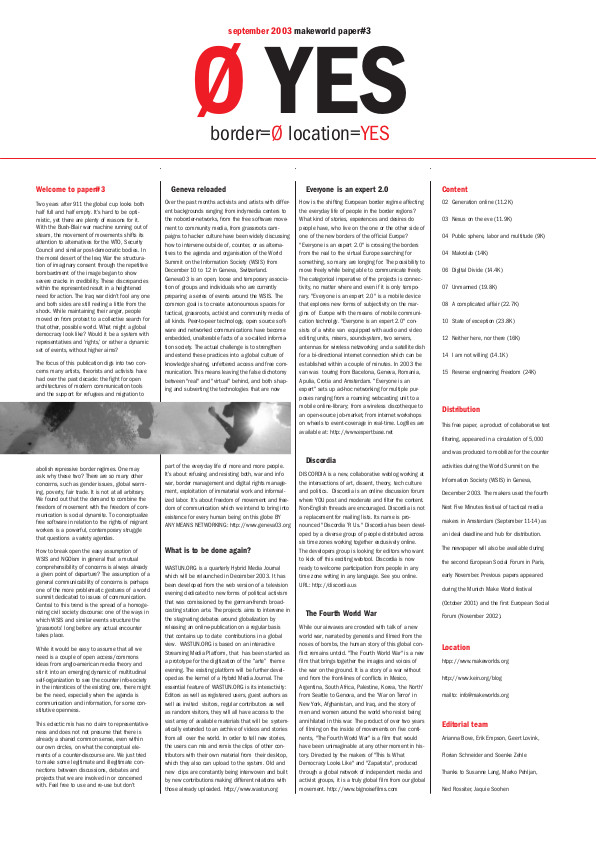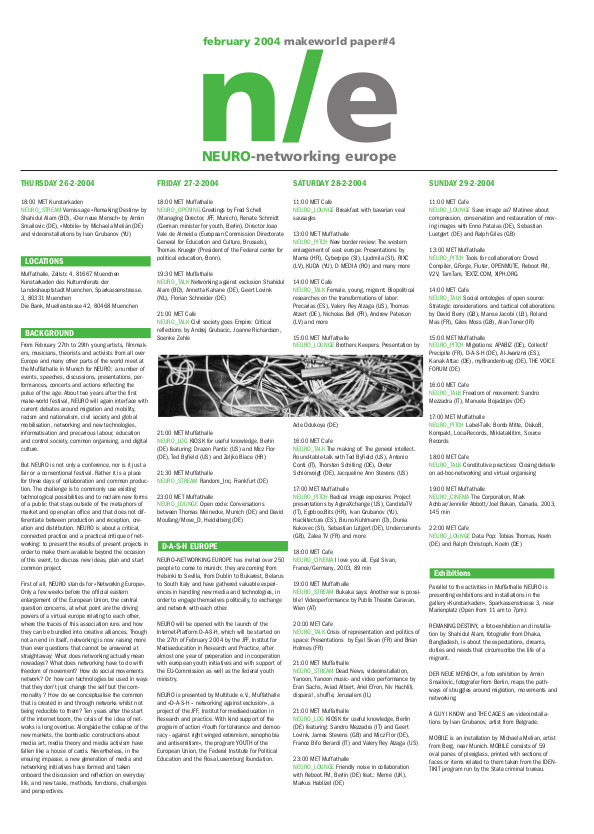John T. Barber: The Black Digital Elite: African American Leaders of the Information Revolution (2006)
Filed under book | Tags: · information society, race, technology
Most discussions of the digital divide focus on the gap between African Americans and others when it comes to using, and benefiting from, the technological and business opportunities of the information age. Although many African Americans are locked out of the information revolution, others are an integral part of its development and progress. Barber profiles 26 of them here, engagingly and informatively blending biography with insight and analysis. Documenting history as it is being made, this book features achievers in all fields of relevant endeavor, including scientists, business leaders, power brokers, and community leaders. Among them are Robert Johnson, CEO of Black Entertainment Television; Richard Parsons, CEO of AOL Time-Warner; congressmen and other policymakers in Washington, D.C.; and men and women who are working to bridge the digital divide in satellite radio, web-based portals, and on the ground with IT workshops. This book is not just about business success or technological progress. The African American “digerati” are solving one of the great social challenges of the 21st century: creating a black community that is prosperous in a society that has changed from being a land-based industrial society to a cyberspace-based information society.
Published by Greenwood Publishing Group, 2006
ISBN 0275985040, 9780275985042
196 pages
Jodi Dean, Jon W. Anderson, Geert Lovink (eds.): Reformatting Politics: Information Technology and Global Civil Society (2006)
Filed under book | Tags: · civil society, ict, information society, internet governance, network society, politics, publishing

“Reformatting Politics examines the ways in which new information and communication technologies (ICTs) are being used by civil society organizations (CSOs) to achieve their aims through activities and networks that cross national borders. These new ICTs–the internet, mobile phones, satellite radio and television–have allowed these civil society organizations to form extensive networks linking the local and the global in new ways and to flourish internationally in ways that were not possible without them.
The book consists of four sections containing essays by some of the top scholars and activists working at the intersections of networked societies, civil society organizations, and information technology. The book also includes a section that takes a critical look at the UN World Summit of Information Society and the role that global governance has played and will play in the use and dissemination of these new technologies. Finally, the book aims to influence this important and emerging field of inquiry by posing a set of questions and directions for future research. In sum, Reformatting Politics is a fresh look at the way critical network practice through the use of information technology is reformatting the terms and terrains of global politics.”
Publisher CRC Press, 2006
ISBN 0415952980, 9780415952989
237 pages
Key terms: ICANN, weblogs, Islamic fundamentalism, mobile phone, Suharto, MacBride Report, Internet governance, WSIS, Indymedia, CSOs, neoliberal, NWICO, power law, Taliban, Information Society, open publishing, ICTs, BitTorrent, Laskar Jihad, microfinance
Review: Athina Karatzogianni.
PDF (updated on 2018-10-24)
Comment (0)Makeworlds papers 1-4 (2001-2004)
Filed under magazine | Tags: · activism, civil society, globalisation, human rights, information society, networks

make world is a unix command used to completely update an operating system. It’s designed to follow the latest developments once the local sources are synchronized. Typing “make world” in the command line rebuilds and renews the whole system while it’s running. The first make-world festival took place from October 18th to the 21nd, 2001 in Munich. Against the backdrop of one of the fastest growing High Tech and New Media clusters in the world, scientists, theorists, artists and activists were invited to participate in presentations, constructive conversations, reflection and debates. It was an opportunity to link up different approaches while keeping and challenging their diversity, contextuality and self reference.
Under the title BORDER=”0″ LOCATION=”YES” the make world paper#1 aimed to track new forms of subjectivity carried out by current modifications of the world; which until recently were characterized as “infotization”, “digitization” and “globalization”. The more these buzzwords loose their glamour, the more important it is to discuss the role borders play, and question what restricted and unrestricted locality, mobility and freedom of movement may mean.
Compiled and edited by Geert Lovink, Sebastian Luetgert, Joanne Richardson, Pit Schultz, Florian Schneider, Soenke Zehlke
32 pages
PDF (updated on 2013-8-10)

One year after the make-world conference, paper#2 has been released at the occasion of the European Social Forum in Florence in the beginning of November 2002.
Compiled and edited by Arianna Bove, Erik Empson, Susanne Lang, Geert Lovink, Florian Schneider, Soenke Zehlke
32 pages
PDF (updated on 2013-8-10)

Make world paper3 has been published on 11 September 2003. It is the third edition of a free newspaper that is distributed in 5,000 copies. Paper3 is geared towards the World Summit on the Information Society in Geneva, in December 2003.
Edited by Arianna Bove, Erik Empson, Geert Lovink, Florian Schneider, Soenke Zehlke
16 pages
PDF (updated on 2013-8-10)

Makeworlds paper#4 is a product of collaborative text filtering and appeared in a circulation of 10,000 hard copies on dead tree. It was produced as a collection of associated or complementary or auxiliary text material at the occasion of NEURO–networking europe, from February 26-29, 2004 in Munich (DE). But also beyond the actual event the paper will be valuable as a entry point to the various debates, presentations, workshops and audio-visual productions during and around the festival.
Edited by Arianna Bove, Annett Busch, Erik Empson, Susanna Lang, Geert Lovink, Sebastian Luetgert, Florian Schneider, Mathias Wrba, Soenke Zehlke
Publisher Multitude, Bernau b. Berlin
32 pages
PDF (updated on 2013-8-10)
Comment (0)
